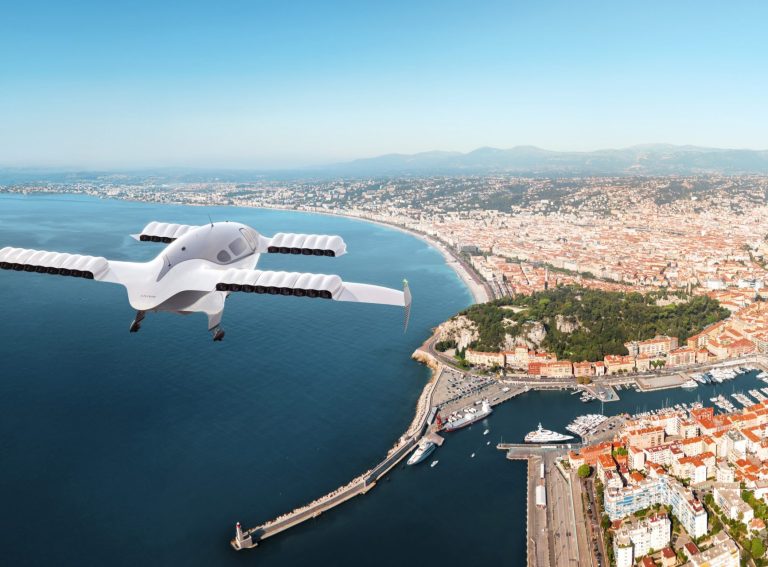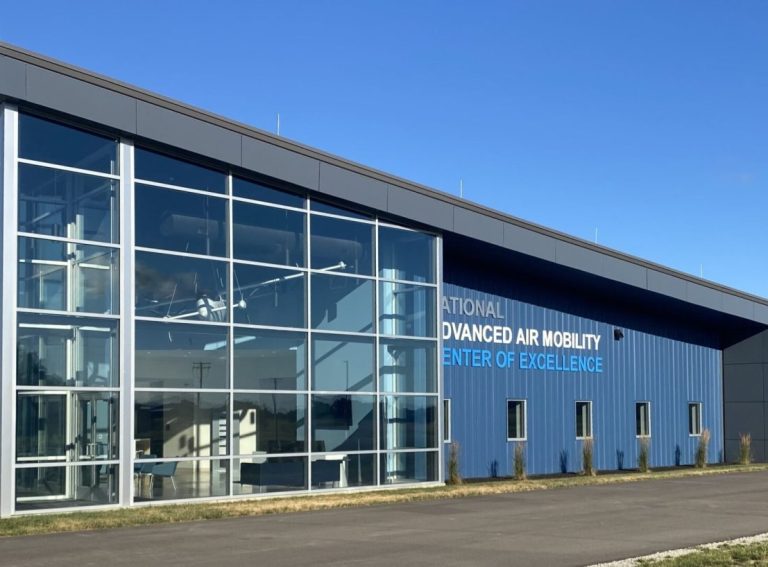Three UK aerospace innovators have partnered to design and build a drone delivery system that could support NHS Wales and other healthcare providers.
Under a Memorandum of Understanding, Bristol-based technology company SLiNK-TECH will integrate its automated vertiport system with Aerovolt’s electric aircraft charging network at Snowdonia Aerospace Centre.
The three parties will share their findings as they develop their respective technologies, and the alliance aims to create cost-effective and scalable drone logistics solutions to supply healthcare in Wales and the UK.
“There are many examples of drones being used to support healthcare around the world today, helping to transport vital supplies such as medication, blood, or life-saving devices,” SLiNK-TECH CEO John Goudie told Zag Daily.
“SLiNK-TECH and Snowdonia Aerospace Centre have been working with the Welsh NHS to explore how drone infrastructure could enhance existing NHS supply chains, and together are starting to identify cases where we think drones might be able to augment the existing setup.
“For example, we’ve been working closely with Welsh Ambulance Service University NHS Trust to envisage ways in which drones might be used to restock ambulances, enabling skilled crews to focus on their lifesaving work.”
As well as the Welsh Ambulance Service University NHS Trust, SLiNK-TECH and Snowdonia Aerospace Centre have been working with the Welsh Blood Service and Velindre University Healthcare Trust on a Small Business Research Initiative (SBRI) project funded by Innovate UK. This project, part of the UKRI Future Flight Challenge and in partnership with the Department of Health and Social Care, is exploring the feasibility of a Beyond Visual Line of Sight (BVLOS) drone network in Wales which could serve the NHS.
BVLOS means pilots can control drones and other aircrafts from ground stations and don’t need to always be in close proximity to the vehicle. The project is still underway and the findings will be shared with Innovate UK in January 2025.
Elsewhere, advanced air mobility players are also designing concepts to serve medical and humanitarian needs. California-based Elroy Air’s Chaparral hybrid eVTOL aircraft aims to carry humanitarian aid such as food, supplements, water, blankets, and medical equipment to any location without a pilot. German aerospace company Volocopter has partnered with one of Europe’s largest air rescue organisations ADAC Luftrettung to use its eVTOL aircrafts for transporting medical professionals.
Last month SLiNK-TECH completed installation of its automated Portal vertiport system at Snowdonia Aerospace Centre which scans the air and ground to guide drones through launch and landing without a pilot.
SLiNK-TECH, Aerovolt, and Snowdonia Aerospace Centre plan to streamline an integrated system to support operations as early as 2025.




